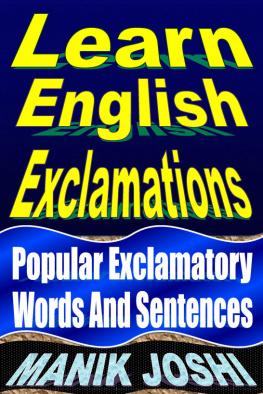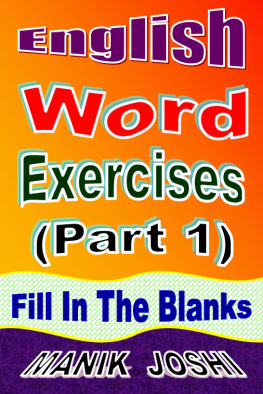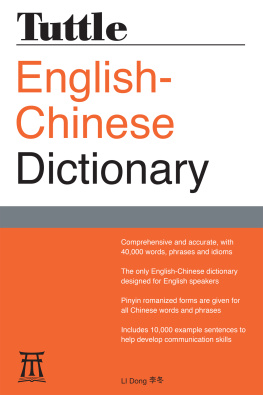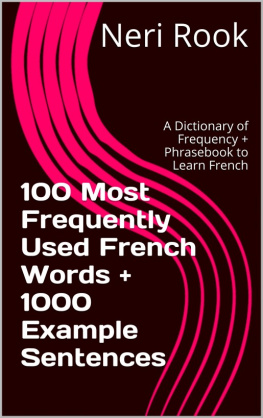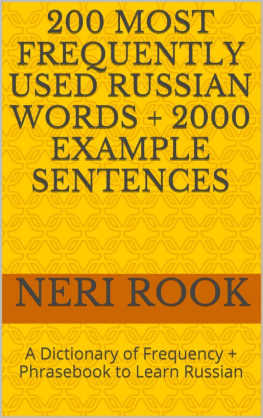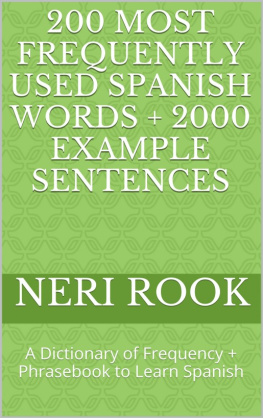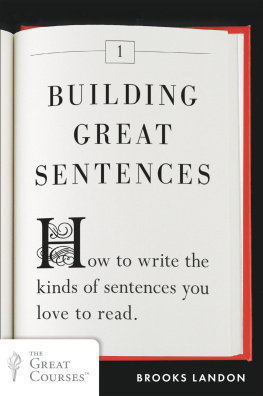Manik Joshi - Learn English Exclamations: Popular Exclamatory Words and Sentences
Here you can read online Manik Joshi - Learn English Exclamations: Popular Exclamatory Words and Sentences full text of the book (entire story) in english for free. Download pdf and epub, get meaning, cover and reviews about this ebook. year: 2013, publisher: Manik Joshi, genre: Children. Description of the work, (preface) as well as reviews are available. Best literature library LitArk.com created for fans of good reading and offers a wide selection of genres:
Romance novel
Science fiction
Adventure
Detective
Science
History
Home and family
Prose
Art
Politics
Computer
Non-fiction
Religion
Business
Children
Humor
Choose a favorite category and find really read worthwhile books. Enjoy immersion in the world of imagination, feel the emotions of the characters or learn something new for yourself, make an fascinating discovery.
- Book:Learn English Exclamations: Popular Exclamatory Words and Sentences
- Author:
- Publisher:Manik Joshi
- Genre:
- Year:2013
- Rating:4 / 5
- Favourites:Add to favourites
- Your mark:
Learn English Exclamations: Popular Exclamatory Words and Sentences: summary, description and annotation
We offer to read an annotation, description, summary or preface (depends on what the author of the book "Learn English Exclamations: Popular Exclamatory Words and Sentences" wrote himself). If you haven't found the necessary information about the book — write in the comments, we will try to find it.
This Book Covers The Following Topics:
1. What is an Exclamation?
2. Exclamatory Sentences
3. Exclamatory Sentences with What
4. Exclamatory Sentences with How
5. Exclamatory Sentences with So and Such
6. Exclamations in Declarative Sentences
7. Exclamations in Interrogative Sentences
8. Exclamations in Imperative Sentences
9. Detailed List of Interjections
10. Using Common Words as Exclamations
11. Useful Exclamatory Phrases/Sentences
12. Other Patterns
13. List of Emotions Shown by Exclamations
Exercise: 1
Exercise: 2
Sample This:
1. What is an Exclamation?
DEFINITION: An exclamation (or interjection) is a short sound, word or phrase which is spoken suddenly to express strong emotion.
Or
Exclamatory words that can stand alone as a sentence while expressing emotions or reactions are called exclamations (or interjections).
Exclamation mark (!) should be written after an exclamation. Exclamation Mark is called Exclamation Point in American English.
There are many exclamatory words (interjections or exclamations) which are often used in daily life. Some of these words express one strong emotion while others express two or more strong emotions. They do not have a grammatical purpose in the sentence and are not associated to the other parts of the sentence. They do not play the role of a subject or a verb. They can stand by themselves, or are placed before, after or in middle of a sentence to express a strong emotion or feeling.
Examples:
Exclamatory Word Alas!
Represents feeling of Sadness, Sorry
Exclamatory Word Um!
Represents feeling of Hesitation
Exclamatory Word Yum!
Represents feeling of Pleasant Taste or Smell
You can use exclamations to show the following emotions:
admiration, affection, anger, annoyance, anticipation, apathy, approval, attention, awe, confusion, delight, despair, disappointment, disapproval, discontent, dislike, distress, eagerness, elation, enjoyment, excitement, fear, frustration, grief, happiness, humour, hurt, irritation, joy, love, mourning, pain, panic, pleasure, pride, remorse, respect, shame, shock, sorrow, sorry, surprise, sympathy, terror, wonder, etc.
IMPORTANT NOTES:
(1). Use Of An Exclamation (Interjection) In A Sentence
(a). Beginning A Sentence With An Interjection
When you begin a sentence with an interjection you can place either comma (,) or exclamatory mark (point) (!) after the interjection.
Examples:
Ah, what a wonderful gift!
Comma (,) after an interjection expresses less emotion.
Ah! What a wonderful gift!
Exclamatory mark (point) (!) after an interjection expresses more emotion.
Note: Both the sentences have exclamatory mark at the end.
Obviously, both are exclamatory sentences. But second one is more emphatic. Also note: if you put comma after an interjection then next word in the sentence will begin from small letter but if you put exclamatory mark after an interjection then next word in the sentence will begin from capital letter.
Important Note: You can also end the sentence with period (.) or question mark (?) to show mild emotion.
Ah, what a wonderful gift.
Ah! What a wonderful gift.
Wow, We won.
Oh, did you go there?
(B). Use Of An Interjection In The Middle Of A Sentence
Examples:
Hundreds of people, alas, feared killed in a massive landslide.
Albert Einstein was born in...er...Germany.
You deleted my folder...um...my file!
(C). Use Of An Interjection At The End Of A Sentence
Example:
Manik Joshi: author's other books
Who wrote Learn English Exclamations: Popular Exclamatory Words and Sentences? Find out the surname, the name of the author of the book and a list of all author's works by series.

